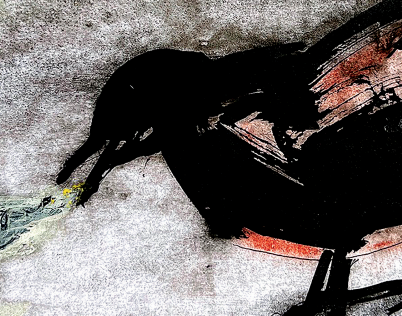The Canon is Perpetually Being
John Pluecker
 Ilan Stavans (ed.),
Ilan Stavans (ed.),
The Norton Anthology of Latino Literature,
W W Norton & Co Inc., New York, 2010.
The new The Norton Anthology of Latino Literature has already unleashed, and will undoubtably continue to provoke, signigicant debate, brow-beating, anger, emotion, territorial defense, criticism, passionate displays of righteousness, tears, boredom, gossip, scrutiny, and admiration. This process of upheaval is positive. A Norton anthology has a certain weight to it, both physical (2,600 onion-skin pages in this case) and intellectual (as a tool of canon-formation). While there have been other solid, rigorous anthologies of U.S. Latino literature by respected critics, Norton anthologies have always held a special place in American literary in-fighting, perdón, discussion. Though the anthology took Ilan Stavans and the other capable editors thirteen years to produce, the journey is only just beginning. Now that the book has been released, the inevitable discussion of its merits and issues has ensued.
In a survey of on-line commentary about the book, I found a number of concerns and complaints, among them: 1) there are no Chicana/o poets born after the 1950s, 2) some have questioned why writers commonly thought of as Latin American, like Isabel Allende or Octavio Paz, are included, 3) a number of specific complaints about the exclusion of particular writers, for example José Montoya and John Phillip Santos. However, the storm that has kicked up the most dust is the notable absence of Sandra Cisneros. The preface states that Cisneros was not included due to permissions issues; however, the story seems to be a bit more interesting though, as a recorded conversation on a local Houston Latina/o radio show, Nuestra Palabra, seems to indicate that Sandra Cisneros did not allow for her work to be anthologized due to Ilan Stavans’ previous criticism of her work in several of his books.
Despite these inevitable concerns, the book is a solid and compelling survey of U.S. Latino literature over the course of the last five centuries. Just like a number of other notable U.S. Latino anthologies (particularly Herencia edited by Nicolás Kanellos), this book is important evidence that Latina/o literary production is nothing new to the United States. Even educated people in the U.S. are often quite unaware that this literature did not emerge in the 1960s with the ethnic nationalist movements in the Chicano and Puerto Rican communities. Anthologies like this one show just how rich and deep U.S. Latino literary history is, spanning centuries from the colonial period to the blossoming of production in the nineteenth and early twentieth centuries. This mission is clear in the organization of the anthology into chronological sections ranging from the period of colonization to the present day.
Of course, the wide range of literary production by Latinos in the U.S. is moving and has a number of incredible texts–Cabeza de Vaca, Tomás Rivera, Guillermo Gómez-Peña and Cherríe Moraga among them. I also had some questions or concerns. One of my main concerns was the fact that no Spanish- language originals are included, instead only English translations are provided. Obviously the book was already extremely long, but for many authors, this seems like a real loss–particularly with authors like José Martí, Daniel Venegas, and José Kozer. In addition, the footnoting of bilingual texts can at times seem distracting or seemingly random as some Spanish is translated and at other times it is left alone. However, these are difficult decisions to make and overall the decisions are sound.
Just as the canon is perpetually being contested and redefined, so this anthology will be edited in subsequent editions. Hopefully, all of the questions and concerns expressed will contribute to an even better revised anthology in the future.
Posted: April 24, 2012 at 6:34 pm










